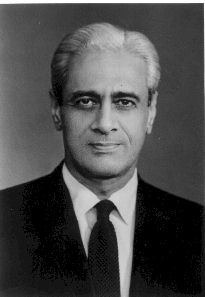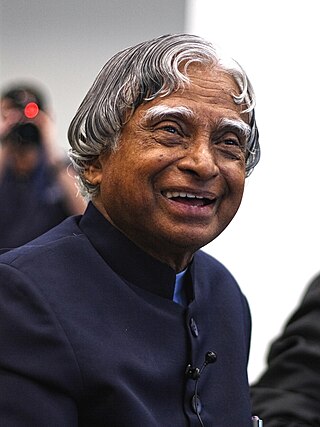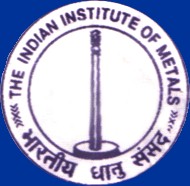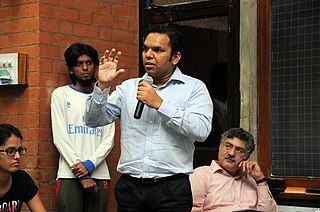Related Research Articles

Avul Pakir Jainulabdeen Abdul KalamBR was an Indian aerospace scientist and statesman who served as the 11th president of India from 2002 to 2007. Born and raised in a Muslim family in Rameswaram, Tamil Nadu, he studied physics and aerospace engineering. He spent the next four decades as a scientist and science administrator, mainly at the Defence Research and Development Organisation (DRDO) and Indian Space Research Organisation (ISRO) and was intimately involved in India's civilian space programme and military missile development efforts. He thus came to be known as the Missile Man of India for his work on the development of ballistic missile and launch vehicle technology. He also played a pivotal organisational, technical, and political role in India's Pokhran-II nuclear tests in 1998, the first since the original nuclear test by India in 1974.

Model Engineering College or MEC is a government cost-sharing technical institute and research centre in Thrikkakara, Kochi, Kerala, India. It was established by the Institute of Human Resources Development (IHRD), an autonomous agency under the Government of Kerala, in 1989. It is affiliated to the APJ Abdul Kalam Technological University (KTU) since 2015.

Satish Dhawan was an Indian mathematician and aerospace engineer, widely regarded as the father of experimental fluid dynamics research in India. Born in Srinagar, Dhawan was educated in India and further on in United States. Dhawan was one of the most eminent researchers in the field of turbulence and boundary layers, leading the successful and indigenous development of the Indian space programme. He succeeded M. G. K. Menon, as the third chairman of the Indian Space Research Organisation (ISRO) in 1972. The second launch pad of ISRO, Satish Dhawan space centre is named after him. He is greatly regarded as the man behind A. P. J. Abdul Kalam.

The Thangal Kunju Musaliar College of Engineering, commonly known as TKMCE, is the first government-aided engineering institution in the Indian state of Kerala, with foundation stone laid on 2nd February 1956, and inaugurated on 3 July 1958. The campus is located in Karicode, approximately 6 kilometres (3.7 mi) away from Kollam, Kerala, India. The college was affiliated to Kerala University before getting changed to APJ Abdul Kalam Technological University when it was formed in 2015. UGC conferred autonomous status to the institution in 2022.

Dr APJ Abdul Kalam Road is a road in New Delhi, India. It lies at the north-east end, stretching from the 'Taj Mansingh Hotel' at the roundabout of Mansingh Road, Shahjahan Road, Humayun Road, Prithviraj Road and a road to Khan Market in the north-east. At the south-west end it stretches up to the crossing at Mustafa Kemal Atatürk Marg and Safdarjung Road junction.

Indian Institute of Metals (IIM) was formed in Kolkata in 1946 under the leadership of Dr. Dara P. Antia, who was then Chief Metallurgist of Indian Aluminum Co. The IIM is over 60 years old premier professional Metallurgical Institute set up to promote and advance the study and practice of the Science and the art of making and treating of metals and alloys and to promote just an honourable practice in Metallurgical profession. The space for its office at Calcutta was provided by Tata Steel. The Institute was inaugurated on 29 December 1947 at the Royal Asiatic Society Hall, Calcutta
A Sivathanu Pillai is an Indian scientist who formerly served as Honorary Distinguished Professor at Indian Space Research Organisation (2015–2018) and an honorary professor at IIT Delhi in the Department of Mechanical Engineering (2015–2016) and a visiting professor at Indian Institute of Science (2014–2015).

Patcha Ramachandra Rao was a metallurgist and administrator. He has the unique distinction of being the only Vice-Chancellor (2002–05) of the Banaras Hindu University (BHU) who was also a student (1963–68) and faculty (1964–92) at that institution. From 1992 to 2002, Rao was the Director of the National Metallurgical Laboratory, Jamshedpur. After his tenure as Vice-Chancellor of B.H.U., in 2005, he took the reins of the Defence Institute of Advanced Technology (DIAT) as its first Vice-Chancellor. He was to serve DIAT until his superannuation in 2007. From 2007 till the end, Rao was a Raja Ramanna Fellow at the International Advanced Research Centre for Powder Metallurgy and New Materials, in Hyderabad, Andhra Pradesh.
Palle Rama Rao FREng is an Indian scientist noted for his contribution to the field of Physical and Mechanical Metallurgy. He has collaborated and conducted research activities for over dozen universities and associations all over India and abroad. He has been honoured with the titles of Padma Vibhushan in 2011 by president of India for his contributions to scientific community. He is acting as the chairman, Governing Council, International Advanced Research Centre for Powder Metallurgy & New Materials (ARCI), Hyderabad.
Brahm Prakash, was a metallurgist known for his work with nuclear materials in India.

Srijan Pal Singh is an Indian author, public speaker and social entrepreneur. He was born and raised in Lucknow, Uttar Pradesh.

Yagnaswami Sundara Rajan or Y. S. Rajan is an Indian professor, scientist and administrator. He is Honorary Distinguished Professor in Indian Space Research Organisation. He has made major contributions to various aspects of management of science, technology and innovation. In 2012, he was awarded with Padma Shri for his contributions in science and engineering. He is one of the well known scientists who has closely worked with Abdul Kalam, former President of India.

The Dr. A. P. J. Abdul Kalam Award, named after the 11th President of India and aerospace scientist A. P. J. Abdul Kalam, is awarded by the Government of Tamil Nadu in recognition of contributions on scientific development, humanities and students' welfare.
Shrikant Lele is an Indian metallurgical engineer and a distinguished professor of Indian Institute of Technology (BHU) Varanasi. He is a former director of the Institute of Technology of the university (2002–05) and is known for his studies on structural metallurgy. He is credited with reportedly original work on X-ray diffraction effects, solid state and martensitic transformations as well as spinodal decomposition in alloys and electron diffraction from quasicrystals. His researches have been documented in several peer-reviewed articles; and Google Scholar the online article repository of Indian Academy of Sciences has listed 33 of them.
Dipankar Banerjee is an Indian physical metallurgist, materials engineer and a former chief controller of R&D at the Defence Research and Development Organization (DRDO). Known for his studies on titanium alloys, Banerjee is an elected fellow of all the three major Indian science academies namely Indian Academy of Sciences, Indian National Science Academy and National Academy of Sciences, India as well as the Indian National Academy of Engineering. The Council of Scientific and Industrial Research, the apex agency of the Government of India for scientific research, awarded him the Shanti Swarup Bhatnagar Prize for Science and Technology, one of the highest Indian science awards for his contributions to Engineering Sciences in 1993. He received the fourth highest Indian civilian honour of Padma Shri from the Government of India in 2005.

Günter Petzow was a German materials scientist and the director at the Max Planck Institute for Metals Research.

Arun Kumar Tiwari is an Indian missile scientist, author, and professor. He has written several books and co-authored 5 books with Dr. APJ Abdul Kalam, including Wings of Fire, the autobiography of Dr. APJ Abdul Kalam, former president of India. Published in 1999, Wings of Fire has become a modern classic with over 30 reprints selling over a million copies and was translated into 18 languages.

Manas Bihari Verma was an Indian aeronautical scientist instrumental in the development of the light combat aircraft, Tejas. In 2018, he was conferred the Padma Sri civilian honour by the President of India. After his retirement he launched Mobile Science Lab aimed at promoting science education in Bihar.

Dr. A.P.J. Abdul Kalam National Memorial is a memorial dedicated to the former president of the Republic of India A. P. J. Abdul Kalam located in Peikarumbu, Rameswaram, Tamil Nadu, India. The memorial was designed and constructed by the Defence Research and Development Organisation (DRDO) as a tribute to Kalam and to display the cultural heritage and ethnic diversity of India. It was officially inaugurated by the prime minister of the Republic of India Narendra Modi on 22 July 2017. A symbol of national integration, the memorial is an amalgamation of Mughal and Indian architecture.
References
- 1 2 3 "INSA :: Deceased Fellow Detail". www.insaindia.res.in. Retrieved 27 October 2021.
- ↑ Rama Rao, P (May 2006). "Dara Pirojshaw Antia". Biographical Memoirs of Fellows of the Indian National Science Academy. 29–30: 21–.
- 1 2 3 Baker, Hugh; Scott, William W (December 1999). "In memoriam: Dara P. Antia, (1914-1999)". Journal of Phase Equilibria. 20 (6): 550. ProQuest 195516462.
- ↑ "Dr. A.P.J. Abdul Kalam: Former President of India". abdulkalam.nic.in. Retrieved 27 October 2021.